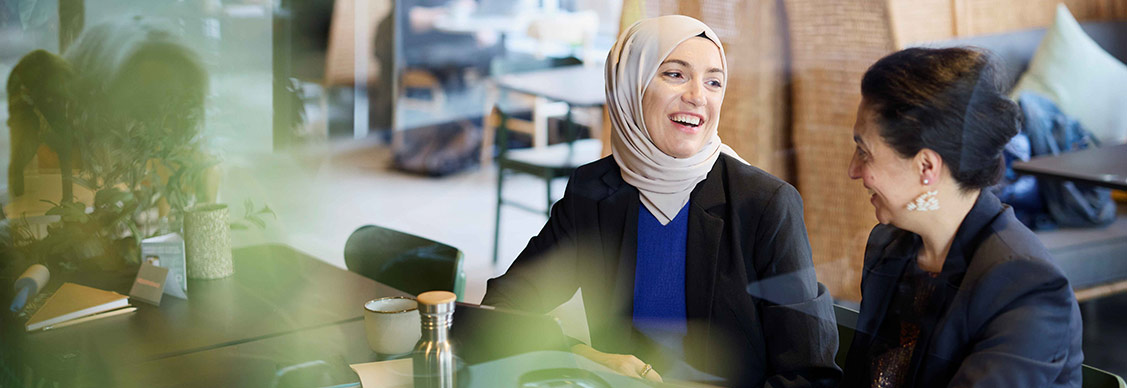Prioritising inclusive office designs in Saudi Arabia
How forward-thinking companies are reshaping workspaces to boost performance and attract top talent
The Kingdom of Saudi Arabia is experiencing a transformative shift in office design, embracing inclusivity to enhance team performance and attract top talent. This progressive approach, already well-established in Europe, is gaining significant traction across the Middle East, particularly in Saudi Arabia. The driving force behind this evolution is the ongoing quest to attract and retain skilled professionals, with JLL's latest Future of Work survey revealing that 55% of respondents identify this as a key corporate goal for the next five years.
Inclusive office design goes beyond simply meeting basic requirements, like wheelchair access, or wellness room. Progressive companies in Saudi Arabia are implementing a variety of features to create more comfortable and accommodating environments for all employees. These innovative designs prioritise well-being, social interactions, and mixed-use spaces, while also leveraging neuroscience to cater to different working styles and needs. The aim is to create "workspaces that work for all," enabling employees to perform at their best in personalised and optimal conditions.
This approach typically involves a thoughtful mix of collaborative areas for extroverted workers and tasks requiring teamwork, as well as quiet zones for introverts and those engaged in activities demanding solitude. By providing a variety of workspace options, companies can cater to different work styles and preferences, ultimately enhancing overall productivity and employee satisfaction.
One of the key aspects of inclusive design is the incorporation of sit-stand workstations, individual lighting and temperature controls. These features make workstations more comfortable for employees with varying sensitivities, allowing them to customise their immediate environment. This level of personalisation can significantly impact an employee's comfort and, consequently, their performance.
Moreover, inclusive design extends beyond the immediate work environment to support employees' holistic needs. In Saudi Arabia, some of the most progressive office designs now include on-site childcare facilities, gyms, and other amenities. These additions not only make the workplace more attractive to potential employees but also help in retaining existing staff by demonstrating a commitment to their overall well-being.
The shift towards more inclusive office designs in Saudi Arabia is particularly noteworthy due to several factors. The kingdom is currently experiencing increased demand for skilled professionals across many sectors of the economy, a situation likely to intensify as more regional and global headquarters are attracted to the country. This heightens the importance of creating workplaces that appeal to a diverse range of potential staff.
Furthermore, the ongoing societal changes in Saudi Arabia are fueling the trend towards inclusivity. Women are assuming a more active role in the workforce, prompting businesses to adopt designs that recognise and cater to their specific requirements. The growth of the private sector and the rapid increase in startups and small businesses, as part of the country's economic diversification efforts, are also driving interest in inclusive office designs.
These trends are resulting in a more progressive and innovative approach to office space utilisation in the Saudi market. Businesses are adopting designs that are more inclusive across various dimensions, including gender, culture, seniority, work style, and function. While larger international corporations are currently leading this trend, the demand for more inclusive office space is expected to permeate the entire market over the next decade.
The growing body of evidence linking workplace well-being to productivity and financial performance is shifting the perception of inclusive office spaces from a desirable addition to an essential element of corporate culture. Progressive businesses in Saudi Arabia are investing more than ever in policies that enable their employees to work in ways that suit them best. Technology plays a crucial role in this transformation, with new building capabilities and technologies constantly emerging to help companies translate their equality and inclusivity goals into the physical workspace.
As companies continue to prioritise employee well-being and engagement, the workplaces of the future in Saudi Arabia will focus on adapting to individual needs and preferences. This shift represents a significant departure from conventional office designs and reflects a broader change in corporate thinking about the relationship between workspace and employee performance.
While challenges remain in the widespread adoption of inclusive office design in Saudi Arabia, the benefits are becoming increasingly recognised across the market. As this trend continues to evolve, it has the potential to reshape the Saudi workplace landscape, driving improvements in employee satisfaction, productivity, and overall business performance.
The future of office design in the Kingdom looks bright, with increased inclusivity, flexibility, and innovation aligning closely with the country's broader economic and social transformation goals. By creating environments that cater to diverse needs and preferences, companies are not only reflecting their corporate values but also bringing out the best in their people. This progressive approach to workplace design is set to play a crucial role in Saudi Arabia's ongoing development, fostering a more inclusive, productive, and forward-thinking business environment for years to come.
